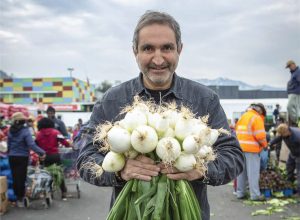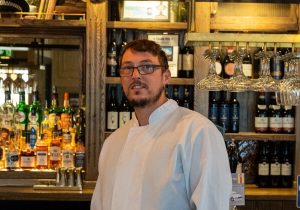From Kitchen to Corporate: How to Grow Your Career in Food & Hospitality

Whilst the UK food and hospitality industry offers a wide range of exciting career paths, climbing the ladder takes more than just hard work: it takes experience, skills, and a smart approach to learning and networking.
Whether you’re just starting out or already working in the industry, read on for a guide to growing your career in food and hospitality.
Work Experience
Getting work experience in different roles and settings is the best way to figure out what you enjoy and what you’re good at. Work in as many kitchens and food settings as possible and try different types of cuisine and restaurant styles, from fast food outlets to fine-dining restaurants. Every place will teach you something new, and the experience will be invaluable for your CV.
If you think you may like to work in the kitchen, working under a variety of different chefs can help you to pick up different techniques, attitudes, and kitchen cultures. It’s also a great way to build your confidence and get noticed. Over time, you’ll start to figure out what kind of career within the food and hospitality industry suits you best, whether that’s cooking, managing, or something else entirely.
Front of House
If you’re interested in working front of house, you will likely be looking to grow your career up to the role of Maitre d’. This is the role of the head waiter who oversees the whole dining room. To get there, you’ll need to show dedication, excellent customer service, and a strong understanding of how a restaurant runs.
Start by being the best waiter you can be. Learn the menu inside-out, stay organised, and always stay calm under pressure. Then, take on more responsibility over time. Offer to help with seating plans, take bookings, handle guest complaints, and support newer staff.
Networking is also key: talk to experienced Maitre d’s and see if you can build a relationship of advice and mentoring. Many people in hospitality are happy to support others who are serious about the industry.
Culinary School
While hands-on experience is important, formal training can give you a huge boost, especially if you’re aiming for higher-level jobs or want to move abroad.
In the UK, there are lots of fantastic professional training options. Le Cordon Bleu London is one of the best-known schools, but many local colleges also offer courses including City & Guilds or NVQ qualifications in Professional Cookery. Whilst these programmes will teach you everything you could possibly need to know about cooking, you’ll also learn about a range of other key responsibilities including kitchen management, food safety rules, and how to cost dishes properly, which are all things that employers really value. Plus, having a qualification can make your CV stand out when applying for roles through food recruitment agencies, compared to other applicants who have not received any form of professional food training.
Business Awareness
If you want to move into management or corporate roles such as Area Manager, Operations Director, or even Food Buyer, you’ll need to understand how the business side of hospitality works. Instead of focusing on great service or delicious food, business awareness will give you a deeper understanding of the financial and business implications of running a restaurant or hospitality establishment.
To start with, ask to shadow your restaurant manager or sit in on business meetings. This will give you valuable insight into areas such as stock control, supplier pricing, and gross profit margins. Also, read up on and get familiar with basic accounting principles and legal rules. By understanding how decisions affect the bottom line, you’ll start to think more like a business owner, which is an essential mindset for leadership roles in the industry.
Marketing
With the enormous rise in social media in recent years, a well-run Instagram and TikTok page can be instrumental for bringing customers into a business. If you are interested in working within restaurant marketing, understanding these platforms and how to handle their algorithms to work in your favour will be instrumental to your career growth.
Start by learning how to use tools like Canva to create eye-catching graphics and menus and learn how to share photos and videos on Instagram and TikTok of food, behind the scenes moments, or special offers in a way that drums up business and generates a buzz.








